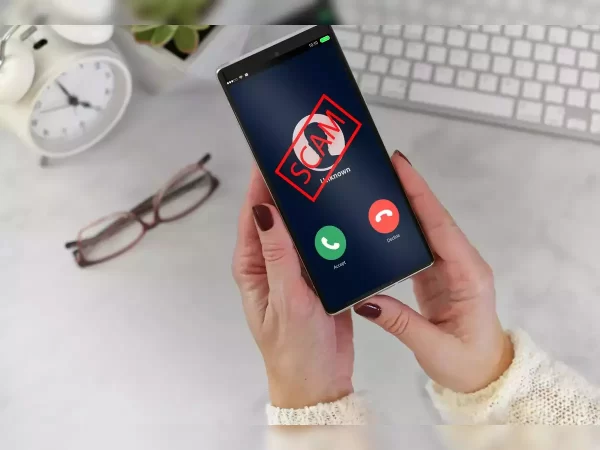Warning: 1909, 911955, 9876543210, 68886 sms, 9999999999 and 8888888888
In an age where our phones are an integral part of our lives, receiving unsolicited and annoying calls is a common occurrence. The numbers you mentioned—1909, 911955, 9876543210, 68886, 9999999999, and 8888888888—are some of the notorious ones that have been reported as sources of spam calls and messages. Let’s dive deeper into this issue and explore ways to protect ourselves from these unwarranted disturbances.
Understanding Spam Calls
Spam calls are unsolicited calls that are typically made for commercial, fraudulent, or malicious purposes. The callers often use automated systems to target a large number of individuals, hoping to trick them into divulging personal information or making financial transactions. These calls can range from promotional offers to scams that aim to steal sensitive data.
The Numbers in Question
Several numbers, such as 1909, have been linked to spam calls in India. The callers behind these numbers often use tactics to appear legitimate, making it crucial to be cautious. For instance, some fraudsters impersonate government agencies or well-known companies to gain your trust.
Identifying Spam Calls vs. Legitimate Calls
Distinguishing between spam calls and legitimate calls can be challenging. However, some red flags can help you identify potential spam. These include urgent demands for personal information, unsolicited offers, and threats of legal action. If a caller pressures you to make immediate payments or share sensitive details, it’s likely a scam.
Why Do You Receive Spam Calls?
Your phone number might have ended up on a spammer’s list through various means, including data breaches, online forms, and even social media. Once your number is in their database, it becomes a target for spam calls and messages. Additionally, the advancement of technology has made auto-dialing and mass messaging easier for scammers.
Impact of Spam Calls
The impact of spam calls goes beyond mere annoyance. These calls can lead to financial loss, identity theft, and compromised personal data. Moreover, the constant interruption from spam calls can take a toll on your mental well-being and productivity.
How to Protect Yourself from Spam Calls
Protecting yourself from spam calls requires a multi-faceted approach. Registering your number with the National Do Not Call Registry (1909) can help reduce the frequency of such calls. Additionally, using call-blocking apps and features provided by your phone can filter out unwanted calls.
Reporting and Taking Action
When you encounter a spam call, reporting it to the relevant authorities can contribute to tackling the issue on a larger scale. Most telecom providers offer mechanisms to report spam. Your vigilance can play a part in curbing this menace.
Government Regulations and Efforts
The Indian government has recognized the seriousness of the spam call issue and has taken measures to address it. Regulations have been put in place to ensure that telemarketing calls are made only to those who consent to receiving them. Violators of these regulations can face penalties.
Staying Alert: Latest Developments
As scammers evolve their tactics, staying informed about the latest developments is crucial. Be aware of new types of scams and remain cautious even if a call seems legitimate. Educating yourself empowers you to make informed decisions.
Mobile Apps and Tools for Call Filtering
Numerous mobile apps and tools are available to help you filter and block unwanted calls. These apps use databases of known spam numbers to prevent them from reaching your phone. Exploring these options can significantly reduce the nuisance of spam calls.
Educational Campaigns: Spreading Awareness
Several organizations and government agencies conduct awareness campaigns to educate the public about spam calls. These campaigns provide information about identifying and reporting spam, ensuring that individuals are equipped to protect themselves.
Your Role: Being Cautious and Responsible
While external measures are essential, your cautious approach also matters. Be mindful of the information you share online, and avoid clicking on suspicious links. Your awareness and responsible behavior can mitigate the risk of falling victim to scams.
Dealing with SMS Spam
Apart from calls, SMS spam is also a prevalent issue. Be cautious of unsolicited messages offering unbelievable deals or asking for sensitive information. Deleting such messages and blocking the sender can help keep you safe.
Conclusion
In a digital landscape filled with convenience and connectivity, the intrusion of spam calls poses a significant challenge. By understanding the nature of these calls, staying informed about the latest tactics, and employing protective measures, you can minimize the impact of spam calls on your life. Remember, your awareness and cautiousness are your best allies in this battle against spam.
FAQs
Q1: Can I completely eliminate spam calls?
A: While it’s challenging to eliminate them entirely, you can significantly reduce their frequency using call-blocking apps and registering with the Do Not Call Registry.
Q2: What should I do if I receive a suspicious call asking for personal information?
A: Do not share any personal information. Hang up and report the call to your telecom provider and relevant authorities.
Q3: Are government efforts effective in curbing spam calls?
A: Government efforts have led to improvements, but scammers continuously adapt. Staying informed and cautious remains crucial.
Q4: How do I report a spam call?
A: Most telecom providers have mechanisms to report spam calls. You can also use the government’s National Do Not Call Registry.
Q5: Can I trust caller ID information?
A: Not always. Scammers can manipulate caller ID to appear as a legitimate entity. Always verify before sharing information.




